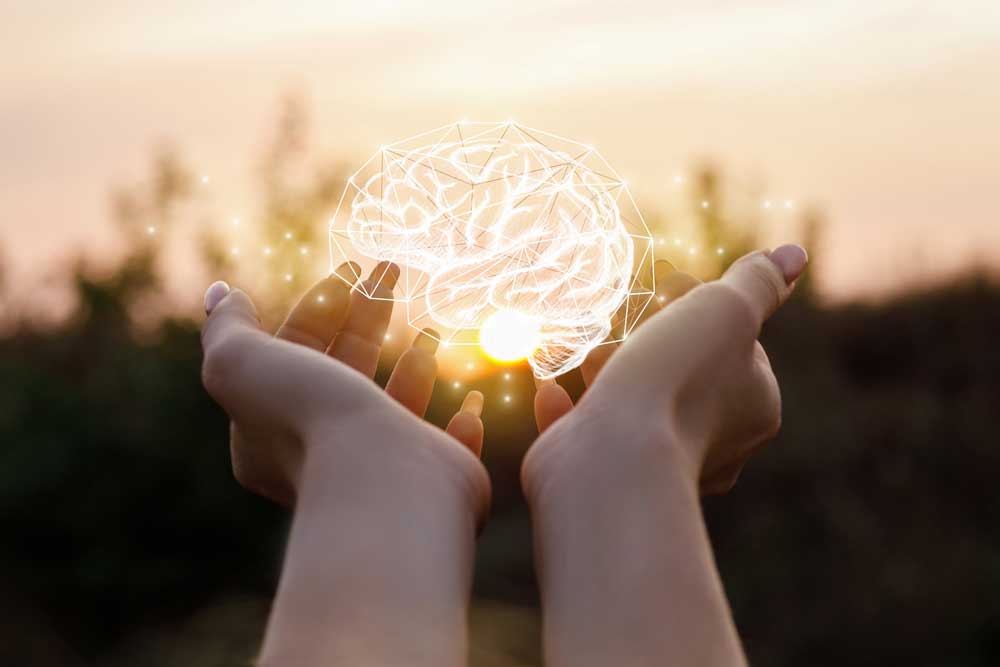When it comes to an individual’s thoughts, actions, words, and deeds, there is a lot going on behind the scenes. This is especially true with addiction— a powerful biopsychosocial disorder. As implied by its disorder classification, addiction can spread its roots deep into multiple facets of its victim’s life…and it all begins in the brain.
Our Body’s Control Center
Cradled within the fused bones of our skull is a collection of soft, somewhat gelatinous tissue that demonstrates computing capabilities so advanced, its calculations have managed to solve many of the world’s challenging riddles.
The fully-developed adult brain weighs roughly 1500 grams and consists of around 86 billion neurons (or nerve cells). When we speak of the ‘brain’ we are referring to the cerebrum, the cerebellum, and the brainstem. The cerebrum is the largest, most recognized part of the brain acting as the center of sensory perception, thought, memory, and motor output.
Neurons control motor and sensory operations by means of electrochemical impulses. These impulses can travel at speeds as high as 100 meters per second allowing for prompt communication between the brain and other parts of the body. Every movement we make, from a large compound motion to the slightest wiggle of a toe, originates as an impulse dispatched by a neuron in the brain. This is also true for thoughts and decisions as well.
Key Parts of the Brain
Although addiction has been known to overrun lives to the fullest extent, its effects are mainly a result of the battle between three key parts of the brain. They are as follows:
Prefrontal Cortex
This is the section of the brain that powers our ability to think critically, make decisions, and problem-solve. Due to its role, the prefrontal cortex is often referred to as the ‘rational brain.’
Any exercise of self-control recruits this cortex.
Basal Ganglia
This part of the brain, located near the center, allows us to find pleasure in activities such as eating, socializing, sexual activity, and exercise. The Basal Ganglia also helps with habit formation. This area of the brain can be over-activated through excess stimulation and can become desensitized over time.
Extended Amygdala
The extended amygdala is a primary source for feelings such as anxiety and irritability. These feelings are often magnified when habits are abandoned creating many of the effects of withdrawal.
Addiction Is Just as Physical as it Is Behavioral
What many people fail to realize is that while addiction is a mental and behavioral disorder, it is also a physical disorder. Once the brain is trained to seek and receive pleasure from substances (or other things), the pleasure-seeking parts of the brain begin to overshadow the rational parts of the brain. For this reason, addicted individuals often continue to engage in harmful behaviors even though they truly want to stop.
Just as a break does damage to our bones, addiction does damage to the brain— making real physical changes. Such things can’t simply be ignored or forgotten about. They need to be repaired through conscious effort and support.
Breaking the Chains— Addiction Recovery
Luckily, the changes made to the brain through the formation of unhealthy habits such as substance abuse can be reversed. The brain can abandon familiar pathways and forge new ones. This, however, requires time and consistency, which is why the first few months of addiction recovery are so important.
At Solida, we know it’s possible for anyone to overcome the physical and mental challenges that addiction brings, but it all begins with a choice. After the choice to make positive changes is made, determination must follow. It is our mission to help those suffering from addiction find the care they need without handing over every last penny they have to crowded drug rehab facilities. Addiction is real, and with the proper resources and support, it can be conquered.
Learn more about The Solida Foundation.
